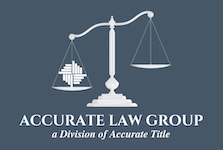- Avoids Probate
- Protect Against Incapacity
- Control Over Asset Distribution
- Keeps Your Affairs Private
- Easier to Update than a Will
- Manage Your Affairs While Living
Top 10 Reasons to Place Your Assets in a Trust

Frequently Asked Questions
1. I have a Trust; how do I convey my property into the Trust?
To convey your property into the Trust, you will sign a Deed conveying the property from yourself individually to yourself as Trustee of the Trust. The Deed needs to be recorded with the Registry of Deeds in the County where the Property is located.
2. Do I also need a Will?
Yes. Sometimes people forget to place their assets into the Trust, or their assets change, and a Will captures any of those assets that are left out of a Trust.
3. I have a Mortgage; will that prevent me from putting my property in the Trust?
No. A Mortgage will not prevent the transfer of the property into a Trust.
4. Are there any other parties that need notification that my property has been conveyed in the Trust?
Yes. You will have to notify (if applicable):
- The landowner as they will have to add their consent to the deed.
- Homeowners’ Association – 55+ Restriction?
- Homeowner’s Insurance company.
5. Will my current Owner’s Title Insurance Policy still be valid if the property is conveyed in the Trust?
YES. Your current Owner’s Title insurance Policy is still valid and covers the Trust as the new owner and there is no additional cost to you.
6. Do I have to Pay Real Estate Transfer Taxes when I convey my property in the Trust?
NO! The Transfer is exempt from transfer tax.


Valerie Riso, Esq.
603-296-2721
valerie@accuratelawgroup.com
valerie@accuratelawgroup.com

Lauri O'Neil, Paralegal
603-296-2731
lauri@accuratelawgroup.com
lauri@accuratelawgroup.com

Jack Bielagus, Esq.
603-296-2715
jack@accuratelawgroup.com
jack@accuratelawgroup.com

